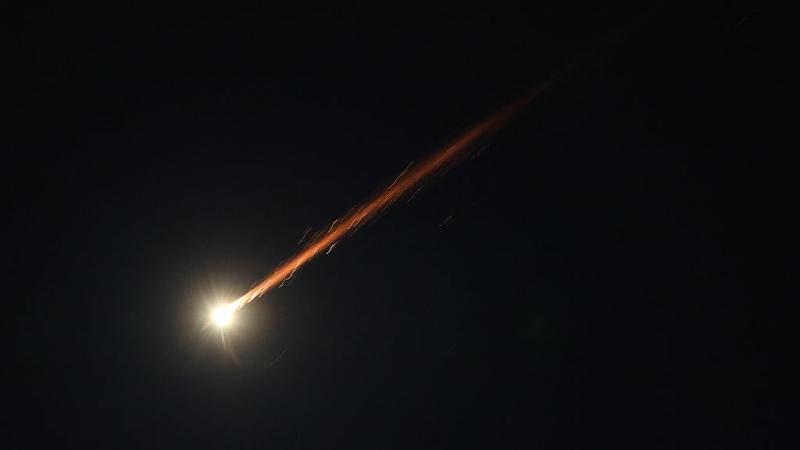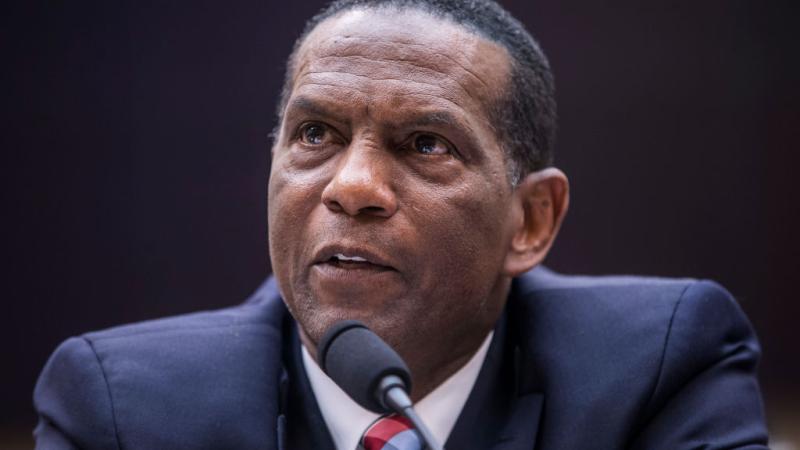Legacy news, social media giants converge in new era of censorship
Once rivals for audience share and cultural relevance, new and old media are now allied in top-down control of information.
Social media giants like YouTube, Facebook and Twitter promised a new era of unfettered information, bypassing traditional media gatekeepers in the process.
People could decide for themselves what mattered most, echoing the country’s democratic ideals.
Instead, we’re now seeing tech platforms following legacy media’s lead, sometimes literally, in deciding what information we can and cannot see.
New York Times reporter Davey Alba coaxed YouTube to remove a video by Aytu BioScience regarding a possible UV light treatment for COVID19 because it “backs up Trump's idea … that UV rays kill coronavirus.”
The video site deemed the information “violated its community guidelines.”
(Lashing back on Twitter at "trolls" claiming "that my getting in touch w/ YouTube to have them take a look at @BioscienceAytu's video amounted to censoring, and suppressing a legit treatment without reporting on it," Alba said, "That's...not true.")
New and old media, once at odds for audience share and cultural relevance, are frequently acting in unison. And it’s happening during a critical election year while a pandemic runs rampant across the globe, the facts of which remain in near constant flux.
Author and Daily Wire podcaster Andrew Klavan savaged Big Tech for deciding what information we can and cannot have at our disposal.
“The difference is not between good and bad information … we need all the information so we can decide,” Klavan said on his April 29 podcast. “YouTube has no business censoring anybody. This distrust of the people, this idea that these experts know what they’re doing and the people are fools, it’s just wrong. We need all the information and we need to hear debate.”
Former Arkansas Gov. Mike Huckabee cried foul after YouTube yanked a video starring two California doctors questioning the government’s stay-at-home mantra.
"These guys are medical doctors," Huckabee said on Fox News. “They are scientists. For heaven's sake, they didn't say anything that was really disputable. They were giving facts [and] figures. I thought the most salient point they made in the course of the video — which I did see before it got pulled — was that historically when you have a pandemic, you quarantine the sick people — not the healthy people. And that was sort of like, you know, the light bulb went off.”
That clip, according to Fox News personality Tucker Carlson, rang up more than 5 million views on YouTube before the site took it down.
The “critical questions” posed by the doctors are ones “we should all be asking, including and especially our policy makers,” Carlson said before paraphrasing one doctor’s summation.
“Dissent of any kind is no longer tolerated in this country,” he said. “Fact-based honesty, which is the soul of science, is under attack, even in hospitals.”
That’s not what The Atlantic argued in a recent story praising China’s throttling of information.
“In the great debate of the past two decades about freedom versus control of the network, China was largely right and the United States was largely wrong,” wrote law professors Jack Goldsmith and Andrew Kane Woods. “Significant monitoring and speech control are inevitable components of a mature and flourishing internet, and governments must play a large role in these practices to ensure that the internet is compatible with a society’s norms and values.”
Paul Levinson, professor of communication and media studies at New York’s Fordham University, cheered social media platforms for filling in occasional gaps left by traditional media outlets.
“YouTube and Twitter and all these media prided themselves on being open to anyone who wanted to say anything,” says Levinson, author of the book “New New Media.” “By and large that’s a very valuable thing to have. Traditional media gets things wrong [sometimes], it gets fossilized.”
Still, he argues, these platforms should consider the data they help spread, especially now.
“People are dying in horrendous numbers,” Levinson says. “We can’t afford to have wrong information out there.”
It’s why legacy news outlets retain their advantage, he argues.
“Traditional media, they come from a fact-checking tradition, making sure before they report anything that it’s corroborated from more than one source,” Levinson believes.
If that means removing a video, like the aforementioned UV light study, all the better, he says.
“Good for the New York Times for pointing that out to YouTube, and good for YouTube for taking that down,” he says. “They need to be more careful than they were prior to the epidemic.”
These censorial trends didn’t start with the pandemic. Twitter began banning political ads last year, while Facebook faced significant pressure from the left, including “Borat” star Sacha Baron Cohen, to follow suit.
More recently, Facebook caught heat for banning posts tied to government lockdown protests. Not to be outdone, YouTube CEO Susan Wojcicki declared on CNN's "Reliable Sources" that pandemic-related content that would "go against World Health Organization recommendations" would be subjected to removal from the site as "a violation of our policy."
Adam Guillette, president of Accuracy in Media, says Big Tech’s allegiance to that government body comes at a curious time. The W.H.O. recently disagreed with itself, first suggesting COVID-19 survivors could get re-infected before reversing course, Guillette notes.
Earlier in the spread of the virus, The U.N. system health organization also put its authority behind the false claim of Chinese health authorities that virus was not transmissible from human to human and opposed the curbs on international travel from infected hot spots that many have credited with helping to contain the virus and spare many lives.
The bigger issue, as Guillette sees it, are platforms acting with an unearned level of authority.
“Social media titans are defining themselves to be the experts on what content we should and shouldn’t be allowed to see ... [while] the so-called experts are regularly contradicting themselves,” he says. “In such a confusing environment it’s outrageous for sites to be censoring information.”
Some of those decisions, he says, could pack an ideological punch.
“It’s been clear for a long period of time YouTube, Facebook, and Twitter are overwhelmingly biased against conservatives,” Guillette says. Still, he allows, “I’m not sure that’s the primary motivation here.”
Liberal journalist Matt Taibbi, formerly of Rolling Stone, recently crossed ideological lines at his site to shame Big Tech for aligning with traditional media scolds:
We have a lot of dumb people in this country. But the difference between the stupidities cherished by the Idiocracy set ingesting fish cleaner, and the ones pushed in places like the Atlantic, is that the jackasses among the “expert” class compound their wrongness by being so sure of themselves that they force others to go along. In other words, to combat “ignorance,” the scolders create a new and more virulent species of it: exclusive ignorance, forced ignorance, ignorance with staying power.
Censorship, he writes, is hardly the answer, and crushing “less well-known sources” only hurts journalism.
“The people who want to add a censorship regime to a health crisis are more dangerous and more stupid by leaps and bounds than a president who tells people to inject disinfectant,” he concluded.















